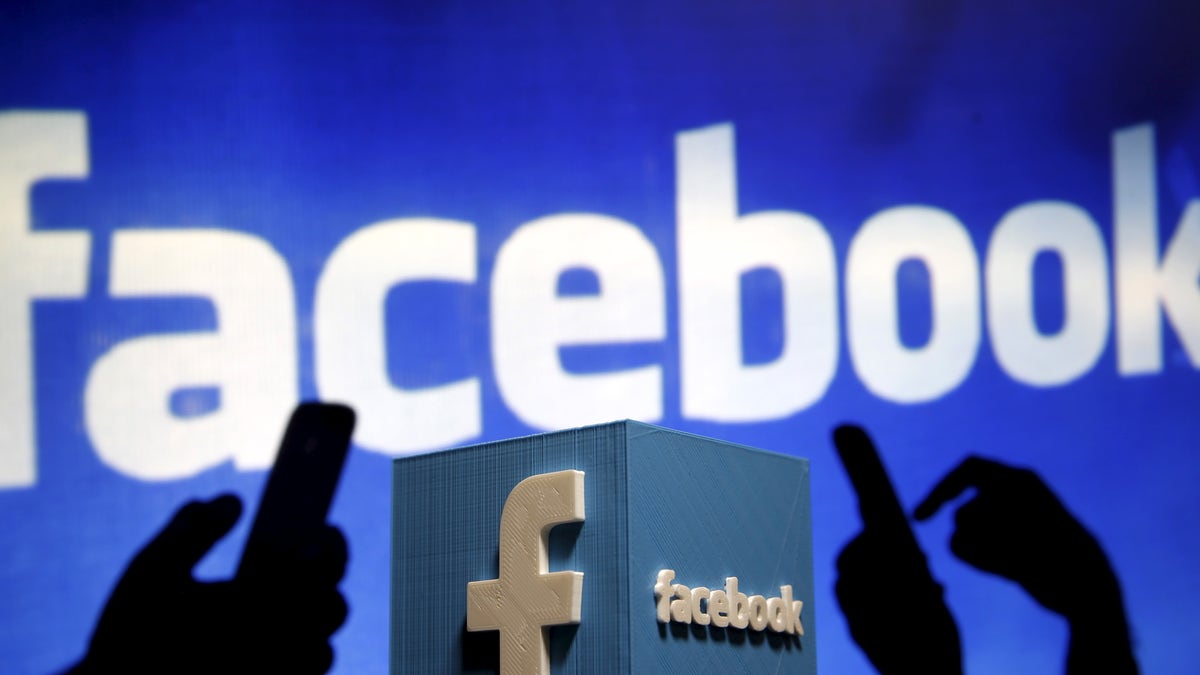
File photo. (REUTERS/Dado Ruvic) (Dado Ruvic / Reuters,Fotoware/ColorFactory)
The largest social network on the planet would like you to believe they are staunchly agnostic and bi-partisan, opposed to picking any favorites. Yet, there are some indications that that Mark Zuckerberg and company have more of a liberal mindset.
A new “get out the vote” campaign in September, which encourages younger people to register, is targeted at Millennials who typically vote Democratic (and were vehement Bernie Sanders supporters). The social network also joined the First Draft project this month, which is filled with outlets like The New York Times and CNN.
Another recent report claims Facebook and Twitter censored news about the Hillary Clinton health scare, which did not appear as a Trending Topic even though it made major headlines.
Last spring, the Trending Topics debate reached a fever pitch amid allegations of political bias.
A political activist named Pamela Geller found her Facebook page about Islam in America had been removed this past summer. Geller told FoxNews.com she suspects Mark Zuckerberg had given into pressure from Europe and particularly from German Chancelor Angela Merkel. “Mark Zuckerberg has adopted a policy of censoring news that portrays Muslim migrants in an unfavorable light and reveals the jihadi motivations of the Orlando killer,” she says.
Related:
Joshua Fredenburg, a book author and speaker who studies youth culture, says the massive social network wants to appeal to its main demographic -- e.g., those under 30.
“One of the primary reasons why I believe Facebook is a left-leaning company is because its biggest audience consists of members of the Millennial Generation who were born between 1977-1994,” he says. “According to generational studies, most members of the Millennial Generation are more left than right when it comes to political and social issues.”
Interestingly, even though Facebook has changed how Trending Topics are picked, the links are mostly generated when stories become popular, so if most users are left-leaning Millennials, the topics could still have a strong political bias, according to Fredenburg.
Michelle Seiler-Tucker, a speaker and business consultant, says there are countless stories of Facebook banning or censoring conservative content. The Geller page removal is one example (although Facebook reps now claim it was an error and the page is back online). Indeed, she says a quick Google search for “Facebook censorship” shows users complaining about being banned or their posts being removed or censored on a routine basis.
“Facebook occasionally conflates right leaning principles with ‘hate speech’ and shuts down groups or people supporting these ideas,” says Seiler-Tucker.
Seiler-Tucker says Facebook even banned stories about itself, which is the ultimate act of censorship. As the social network becomes a major media outlet and one of the most trusted ways people discover news stories, the Trending Topic debate became more scandalous.
Some experts argue that the bias might be overblown, however.
Anthony Orlando, a Public Policy Researcher at the University of Southern California, told FoxNews.com that the campaign contributions from Facebook leadership might paint a different story. For example, the official PAC (political action committee) for Facebook contributed 53 percent in funds to Republican candidates so far in 2016; in 2014, it was 51 percent, according to OpenSecrets.org.
“It’s unlikely that Facebook is systematically pushing left-leaning content because Mark Zuckerberg or anyone else at the company is left-leaning,” says Orlando.
Social media expert Aristotle Eliopoulos told FoxNews.com the real issue has to do with what companies and individuals post on the social network, which Facebook doesn’t control. If there are more left-leaning companies and more users posting comments about Hillary Clinton, the social network will take on a certain tone. If more companies like Chick-fil-A post on Facebook, that will turn the tide in a different direction. Facebook could easily shift one way or another.
Fredenburg says there is one way to ensure that Facebook doesn’t promote any agenda. He says the company should start a Trust and Safety Council similar to what Twitter has done that includes feedback from experts on both sides of the aisle to keep the social network as neutral as possible. Facebook took a step in that direction when Mark Zuckerberg invited conservative pundits to its headquarters to discuss bias and censorship on the network several months ago.
Mark Zuckerberg’s own political viewpoints are not widely known -- he has talked about immigration reform and has a PAC called FWD that takes an opposing view to most of what Republican presidential nominee Donald Trump has advocated, especially mass deportation.
Most of Zuckerberg’s own campaign contributions tend to fall in the middle. Seiler-Tucker says he appears to be motivated mostly by a personal mission and not claim a party affiliation.
In the end, the social network is too big to pin down. The experts all agreed that there are too many users, too many executives at Facebook, and too many posts either in favor of or against, say, gun control or immigration reform to come up with a definitive answer about bias.








































